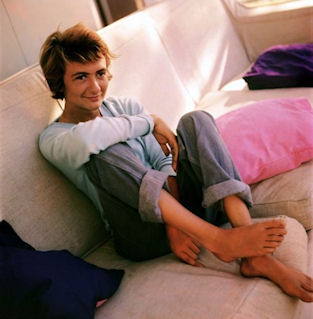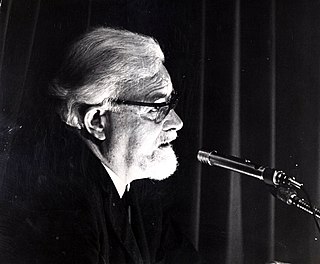A Quote by Francoise Sagan
For this was the round of love: fear which leads on desire, tenderness and fury, and that brutal anguish which triumphantly follows pleasure.
Related Quotes
I did not believe him capable of love. That is an emotion in which tenderness is an essential part, but Strickland had no tenderness either for himself or for others; there is in love a sense of weakness, a desire to protect, an eagerness to do good and to give pleasure--if not unselfishness, at all events a selfishness which marvellously conceals itself; it has in it a certain diffidence.
What is required is the finding of that Immovable Point within one's self, which is not shaken by any of those tempests which the Buddhists call 'the eight karmic winds': 1-fear of pain, 2-desire for pleasure; 3-fear of loss; 4-desire for gain; 5-fear of blame, 6-desire for praise; 7-fear of disgrace; [and] 8-desire for fame.
Sorrow, terror, anguish, despair itself are often the chosen expressions of an approximation to the highest good. Our sympathy in tragic fiction depends on this principle; tragedy delights by affording a shadow of the pleasure which exists in pain. This is the source also of the melancholy which is inseparable from the sweetest melody. The pleasure that is in sorrow is sweeter than the pleasure of pleasure itself.
When desire, having rejected reason and overpowered judgment which leads to right, is set in the direction of the pleasure which beauty can inspire, and when again under the influence of its kindred desires it is moved with violent motion towards the beauty of corporeal forms, it acquires a surname from this very violent motion, and is called love.
There are confessable agonies, sufferings of which one can positively be proud. Of bereavement, of parting, of the sense of sin and the fear of death the poets have eloquently spoken. They command the world's sympathy. But there are also discreditable anguishes, no less excruciating than the others, but of which the sufferer dare not, cannot speak. The anguish of thwarted desire, for example.
The collaboration which sometimes follows is seldom based on good will: usually on desire, rage, fear, pity or longing. The modern illusion concerning painting (which post-modernism has done nothing to correct) is that the artist is the creator. Rather he is a reciever. What seems like creaton is the act of giving form to what he has recieved.
There are five dangerous faults which may affect a general: recklessness, which leads to destruction; cowardice, which leads to capture; a hasty temper, which can be provoked by insults; a delicacy of honour, which is sensitive to shame; over-solicitude for his men, which exposes him to worry and trouble.
The competition between human beings destroys with cold and diabolic brutality... Under the pressure of this competitive fury we have not only forgotten what is useful to humanity as a whole, but even that which is good and advantageous to the individual. [...] One asks, which is more damaging to modern humanity: the thirst for money or consuming haste... in either case, fear plays a very important role: the fear of being overtaken by one's competitors, the fear of becoming poor, the fear of making wrong decisions or the fear of not being up to snuff...






































